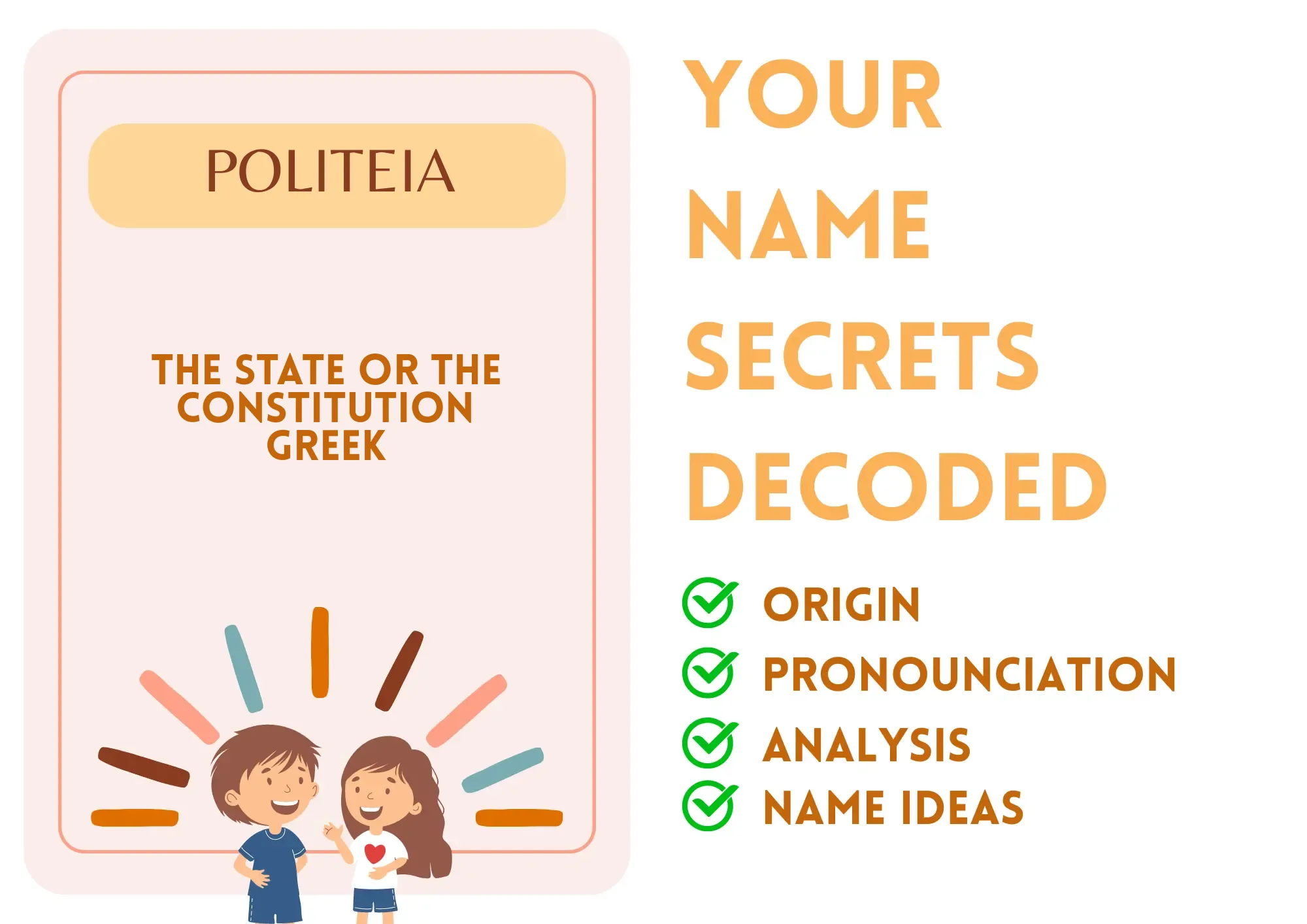
Politeia
Politeia, derived from ancient Greek, translates to 'the state' or 'the constitution', and is often associated with notions of governance and civic responsibility. Primarily used in philosophical and political contexts, it reflects the principles of community and order.
The name Politeia evokes a strong sense of civic duty and social awareness. It is not commonly used as a first name but might appeal to parents seeking a distinct and intellectually rich name.
Due to its Greek roots, Politeia carries cultural significance in discussions about democracy and the ideal state, as explored in works by philosophers like Plato.
Basic Information
Gender: Unisex
Sounds Like: poh-LI-tay-uh
Pronunciation Explanation: The emphasis is on the second syllable, 'LI', with a smooth transition between each syllable.
Summary and Meaning
Meaning: the state or the constitution (Greek)
Origin: Of ancient Greek origin, with roots in philosophy and political theory.
Usage: Politeia is generally unisex, and though it leans more toward femininity due to its phonetic structure, it is not exclusively so.
Name Number (Chaldean)
Name Number (Pythagorean)
Popularity (Global Rank)
Overall: 834989
Boys:
Girls: 77177
Most Popular in
Religious and Cultural Significance
Religion: None
Background: Politeia does not have direct religious connotations but is heavily linked to philosophical discussions in ancient Greek culture.
Cultural Significance: In Greek philosophy, particularly in Plato's 'Politeia' (often translated to 'The Republic'), the concept addresses the nature of justice and the ideal state, making it significant in understanding civic philosophy.
Historical Significance: Historically, Politeia has been a key term in political philosophy, especially in discussions surrounding governance and democratic principles, greatly influencing Western political thought.
Popular Culture
Literature and Mythology: The term Politeia is notably featured in Plato's works, where he outlines his vision of a just society.
Movies and Television: The name itself is not prevalent in mainstream cinema or television, but the themes it represents are often explored in political dramas and documentaries.
Feelings and Perceptions
Perception: Politeia is often perceived as sophisticated and intellectually challenging. It may evoke respect for its philosophical roots and civic associations.
Positive Feelings: Intellectual, strong, civic-minded, enlightened.
Negative Feelings: Might be seen as overly formal or academic.
Practical Considerations
Ease of Writing and Calling: Politeia is somewhat complex to write and pronounce, containing four syllables which may pose a challenge for casual conversation but is still memorable.
Common Typos and Misspellings: Politea,Politeit,Politeiaa,Politie
Common Nicknames: Polly,Tia
Politeia Popularity
Politeia Usage and Popularity By Country
| Country | Rank (Overall) |
|---|---|
| Greece | 11193 |
| Netherlands | 70785 |
| United States | 539518 |
Politeia Usage and Popularity By City
| City | Rank (Overall) |
|---|
Compatibility Analysis
Famous Persons Named Politeia
No results found for Politeia.
Related Names
Similar Sounding Names:
Ophelia,Elitiah,Lucidia,Elysia